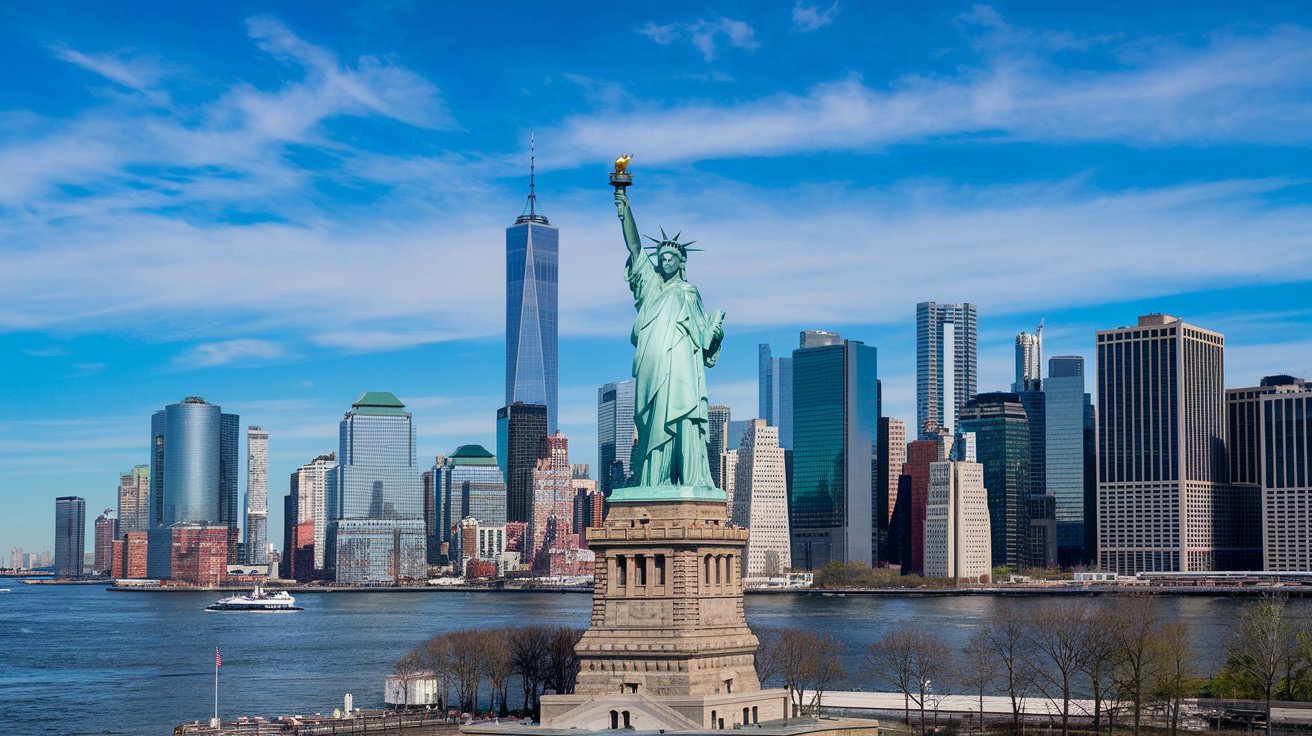French Politician Demands Return of Statue of Liberty Amid U.S. Policy Criticism
The Statue of Liberty, a historic symbol of freedom and democracy, has become the center of controversy after French politician Raphaël Glucksmann demanded its return, citing U.S. policies that contradict the values it represents. His comments have sparked widespread debate, raising questions about America’s global stance on human rights, freedom, and democracy.
Why is France Asking for the Statue of Liberty Back?
The Historical Context
France gifted the Statue of Liberty to the United States in 1886 as a symbol of their shared commitment to liberty and democracy. Designed by French sculptor Auguste Bartholdi and engineered by Gustave Eiffel, the statue stands as an enduring representation of freedom.
Glucksmann’s Argument
French politician Raphaël Glucksmann believes that the U.S. no longer upholds the values the statue represents. He specifically pointed to policies that he claims contradict freedom, democracy, and human rights. In a recent speech, he stated:
“We gave [the Statue of Liberty] to you as a gift, but apparently you despise it. So, it will be just fine here at home.”
His remarks suggest a strong criticism of America’s political direction, particularly concerning immigration, press freedom, and international relations.
U.S. Government’s Response to the Demand
The White House Reaction
The U.S. government dismissed Glucksmann’s comments as symbolic rather than a serious diplomatic request. White House Press Secretary Karoline Leavitt responded:
“It’s only because of the United States of America that the French are not speaking German right now.”
Her statement emphasized the long-standing alliance between the two nations and the critical role the U.S. played in France’s liberation during World War II.
Official French Government Stance
Despite Glucksmann’s vocal stance, the French government has not made any formal request to reclaim the statue. This means that his remarks, while generating significant media attention, are not representative of France’s official position.
The Symbolism of the Statue of Liberty
What the Statue Represents
The Statue of Liberty has historically stood as a beacon of hope and freedom, particularly for immigrants arriving in the U.S. It represents:
- Liberty and Democracy: A universal symbol of human rights and freedom.
- U.S.-France Friendship: A commemoration of the two countries’ alliance.
- A Welcome for Immigrants: Millions saw the statue as the first sign of new opportunities in America.
Current Controversy: Has the U.S. Changed?
Glucksmann’s comments have reignited discussions about whether the U.S. still upholds the values the statue represents. Critics argue that modern policies on immigration, surveillance, and international relations may contradict its original symbolism.
Will the Statue of Liberty Ever Be Returned?
The Legal and Political Reality
| Factor | Likelihood of Return | Reasoning |
|---|---|---|
| U.S. Ownership | Extremely Low | The statue is American property and a national landmark. |
| French Government Position | No Official Support | France has not made a formal request. |
| Political Motivation | Symbolic Only | Glucksmann’s statement was made to raise awareness, not to demand actual action. |
While this controversy has sparked debate, the return of the Statue of Liberty to France remains an unlikely scenario.
Conclusion
The Statue of Liberty is a powerful symbol of freedom, but this recent controversy highlights broader concerns about America’s evolving role in global democracy. While Glucksmann’s demand is unlikely to lead to action, it does bring attention to whether the U.S. still represents the ideals it once did.
As the debate continues, one thing remains certain: Lady Liberty will likely stay in New York Harbor, but the conversation surrounding its meaning and the values it represents will persist.





